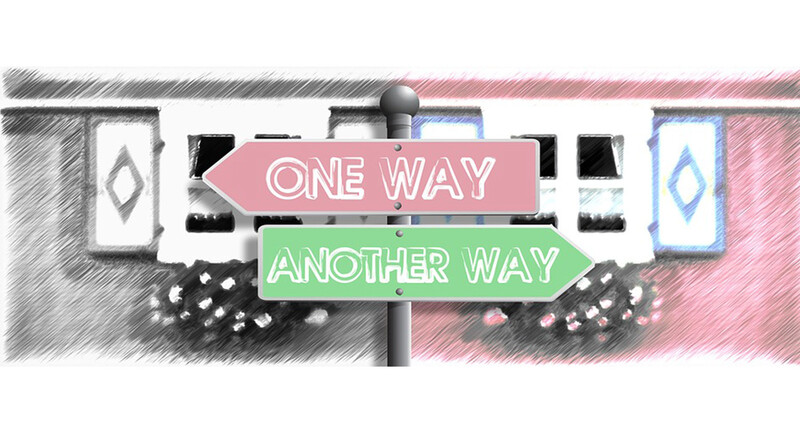Schools across the country have welcomed students back into the classroom, and for teachers who spent months adapting to virtual lessons, this fall presents yet another challenge to readjust to new circumstances. With many COVID-19 precautions still limiting how students interact, some educators may be longing for a sense of routine.
As one teacher recently told Chalkbeat about fall planning, “I’m hoping for less pain and struggle for my students and my colleagues . . . . Man, I’m just hoping for some normalcy.”
Normalcy is critical for students and teachers alike, but in a time of so much change, achieving it doesn’t have to mean reverting to pre-pandemic teaching practices. As U.S. Secretary of Education Miguel Cardona said in this month’s issue of Educational Leadership, “If our goal is simply to go back to where we were before March 2020, we’ll miss the chance to forge opportunity and needed progress from this crisis.”
Instead, as schools address instructional gaps from this past year, educators should weed out methods that are no longer (or maybe never were) serving their purpose.
Spotting Faulty Teaching Methods
In their new ASCD book, Why Are We Still Doing That? Positive Alternatives to Problematic Teaching Practices, authors Pérsida and William Himmele take aim at 16 common classroom practices that may be worth replacing. From the beginning, the authors acknowledge that it can be difficult for educators to recognize when particular strategies aren’t helping.
“Most teachers spend about 13,000 hours in the classroom as students before they graduate high school. That’s a lot of hours soaking up habits that they will later consciously or unconsciously perpetuate, even after learning about best practices in college or university,” they write.
That said, the book’s straightforward, research-driven analysis provides a clear view of which seemingly effective methods actually fail in practice. Some are well-known, and although experts have critiqued their use for years, are still being used in most classrooms. The full list comprises:
• Round robin reading
• Teaching to learning styles
• Homework as the default
• Using interim assessments as “formative assessments”
• Asking, “Does everybody understand?”
• Traditional Q&A
• Data-driven everything
• Publicly displayed data walls
• Content breadth over depth
• Adhering to rigid pacing guides
• Teaching to the test samplers
• An analysis-only approach to reading
• Shortchanging science and social studies
• Ignoring curriculum experts
• Using behavior charts
• Withholding recess
To be clear, the Himmeles’ book isn’t a takedown. The authors use an empathetic lens to analyze each of these approaches and spotlight their problems. No teacher is perfect, and the Himmeles, as former educators and school administrators, have plenty of experience making mistakes and learning from them. Now, they’re sharing their insight.
Educators who are apprehensive about saying goodbye to teaching strategies they’ve used for years need not worry—the authors explain how to meet the goals these less effective methods were intended to achieve. For example, round robin reading activities can cause anxiety and cut down on each student’s time practicing literacy skills, but choral or shared reading are promising alternatives. Behavior charts are easily rigged and can function as a form of public shaming, but investing in social-emotional learning and restorative practices can more effectively soothe challenging students and decrease disruption.
Important Reminders
As the Himmeles write, teaching is already a humbling experience. Despite the training so many educators undergo, stepping in front of a full classroom every day opens up a world of uncertainty. On the most difficult days, it’s easy to feel like a bad person, not just a bad teacher, they write. To counter those mental challenges, they share four key takeaways:
• We all have choices.
• Our choices have side effects.
• We all need grace.
• We need one another.
Each of these points is meant to serve as a critical reminder to educators: yes, you have agency and power over your students’ learning, but no, you are not alone. Learning how to turn a critical eye toward common teaching practices and swap out the ineffective ones is exactly the work empowered, supported teachers can tackle this fall.
Looking Forward
At the end of the book, the authors acknowledge that change is inevitable in education. They can remember a time when schools enforced strict professional dress codes for women specifically and teachers’ lounges were full of cigarette smoke.
“We’ve moved on from these archaic rules and habits, which, at the time, seemed unremarkable,” they write. “Likewise, we need to move on from educational practices that provide short-term gains in exchange for long-term losses.”
A return to pre-pandemic learning conditions may be out of the question, but, as the book argues, that’s all the more reason to start building toward a bright future ahead.








